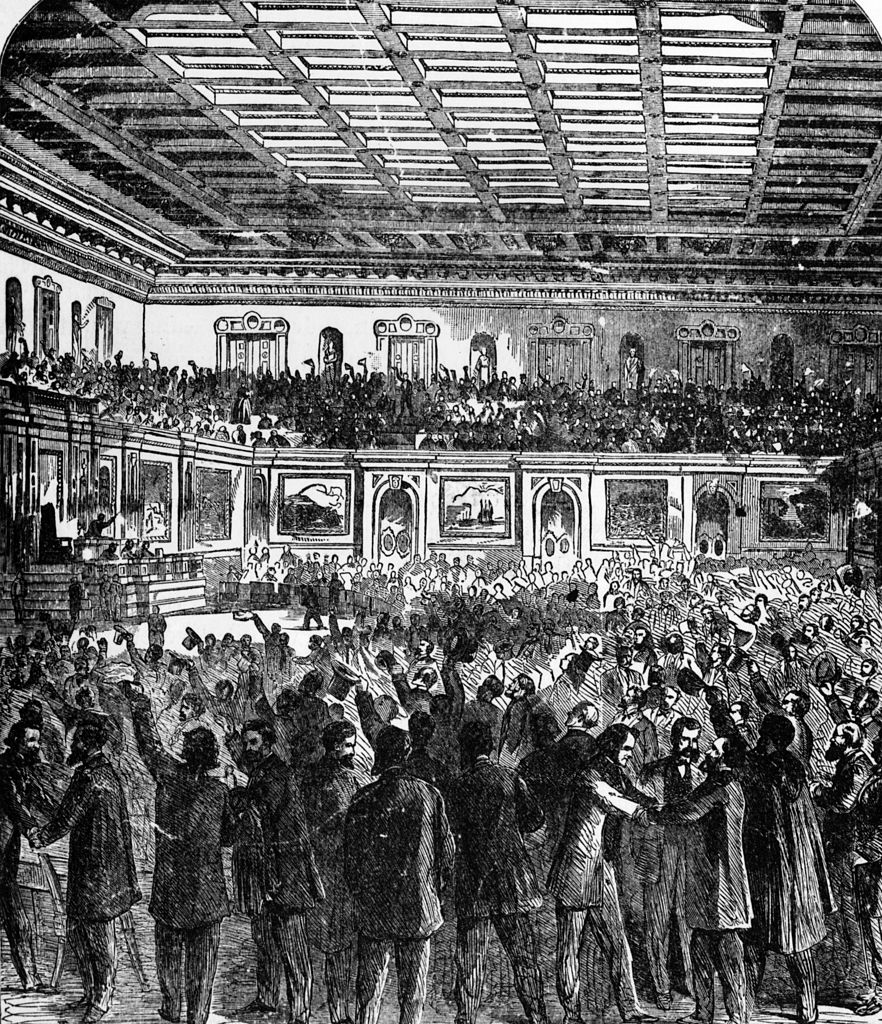
The push to make Juneteenth a federal holiday, which successfully led to the first national Juneteenth observance last year, brought a new wave of attention to the history behind this celebration: That on June 19, 1865, enslaved men and women in Texas found out—weeks after the Civil War ended—that they were free, and the Union Army’s Major General Gordon Granger issued General Order No. 3: “The people of Texas are informed that, in accordance with a proclamation from the Executive of the United States, all slaves are free.”
But the full story was not that simple.
“There are some enslavers in Texas that didn’t tell their enslaved people that they were free, and they had them keep on working,” says Daina Ramey Berry, Professor of History and Dean of Humanities and Fine Arts at the University of California, Santa Barbara.
So then when did slavery actually end in the United States?
Read more: Juneteenth Is Now a National Holiday. Are Reparations Next?
More from TIME
There are multiple dates that could be singled out, depending on the geographic location of the enslaved person. The Civil War, fought over slavery, ended in April 1865, but the end of slavery was more like a process, rather than an event that occurred on a particular day. There were some cases of people who escaped to freedom or won their freedom in court years earlier. And Berry argues that the most important date to highlight would be Dec. 6, 1865, when the 13th Amendment, abolishing slavery, was ratified by the States, just about a year after it was passed by Congress on Jan. 31, 1865.
Most people outside the scholarly community think slavery ended with the Emancipation Proclamation in 1863, but that’s a common misconception.
President Abraham Lincoln’s Jan. 1, 1863, executive order stated “that all persons held as slaves” within the states that seceded from the Union “are, and henceforward shall be free.” As the historian Carole Emberton explained in a 2022 essay for TIME, a big part of the goal of the proclamation was to strip the Confederate army of the people supporting their war effort, as enslaved people performed manual labor for the troops and kept the plantations running so they could be fed. Much of the rhetoric around Juneteenth claims that it’s the day, two-and-a-half years after the Emancipation Proclamation, that enslaved Texans found out they were free. But that implies that the Emancipation Proclamation freed all enslaved people—and it did not. According to Berry, many in the Confederate states didn’t obey Lincoln’s order because “they didn’t see him as their president.”
“The Emancipation Proclamation did not lead to widespread freedom of African Americans,” says Berry. “It didn’t change that many people’s lives. Very few enslaved people were given their freedom after the Emancipation Proclamation.”
But even when slavery did end in Texas, formerly enslaved people still had a long road to freedom ahead of them, as they faced inadequate infrastructure to support them as they started new lives. As Laura Smalley, who was born into slavery in Texas, recalled that bittersweet moment in a 1941 interview, “We didn’t know where to go. They turned us out just like, you know, you turn out cattle.”
The ideal Juneteenth celebration includes an educational component, activists who supported the creation of the federal holiday told TIME last year, discussing stories like Smalley’s and how the legacy of slavery can still be seen in society today,
“It was very important for the formerly enslaved to tell the story of slavery to a younger generation,” says Berry. “Some of that has gotten lost. It’s not completely lost, but some of it has dissipated… Juneteenth celebrations are celebrations, but they’re also an acknowledgement of a history and an understanding of the meaning of freedom. And that’s really, really important and should always be central to these conversations.”
Correction, June 15
The original version of this story misstated the last name of a formerly enslaved woman in one reference. Her name was Laura Smalley, not Smiley.
More Must-Reads from TIME
- Inside Elon Musk’s War on Washington
- Meet the 2025 Women of the Year
- The Harsh Truth About Disability Inclusion
- Why Do More Young Adults Have Cancer?
- Colman Domingo Leads With Radical Love
- How to Get Better at Doing Things Alone
- Cecily Strong on Goober the Clown
- Column: The Rise of America’s Broligarchy
Write to Olivia B. Waxman at olivia.waxman@time.com